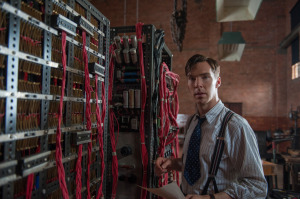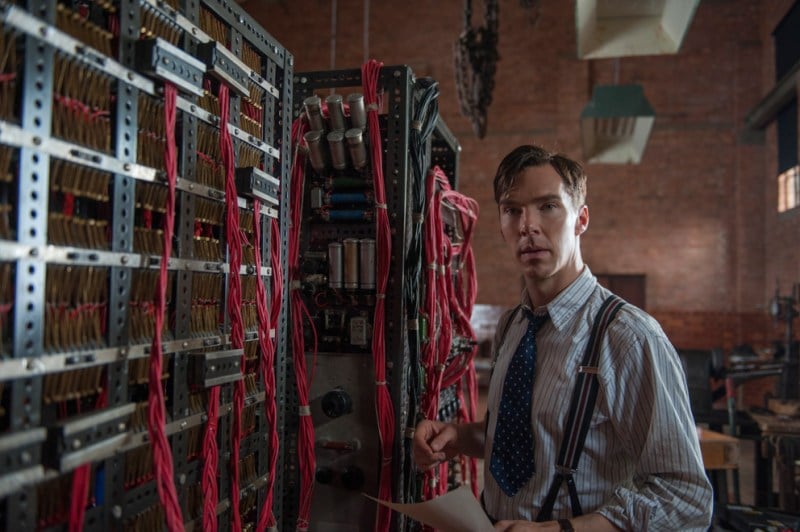
The 37th annual Mill Valley Film Festival (MVFF) wrapped last weekend, after 10 days of films from around the world in Larkspur, San Rafael and Mill Valley. Each year, the festival tries to attract the biggest Oscar hopefuls. Last year, the program included “12 Years a Slave” and “Nebraska,” with special nights honoring Lupita Nyong’o and Jared Leto, both of whom went on to win Supporting Actor and Actress Oscars in February. This year, the program also included several buzzed-about films that also screened at the Toronto International Film Festival, such as “Wild” starring Reese Witherspoon, “Whiplash” starring Miles Teller (which opens today), and Bennett Miller’s Cannes-winning “Foxcatcher.” There was also a strong slate of international films including Olivier Assayas’ actress-centric “Clouds of Sils Maria,” the hilarious vampire mockumentary “What We Do In the Shadows” and the chilling political thriller “ ’71” about a British solider stranded in the middle of IRA territory.
But the films that seem to have won over audiences hearts most were those about two major geniuses of the STEM fields: computer science trailblazer Alan Turing (“The Imitation Game”), who cracked the Engima Code during World War II, and cosmologist Stephen Hawking (“The Theory of Everything”). Of course, it probably helps that they were played by heartthrobs Benedict Cumberbatch and Eddie Redmayne, respectively. “The Imitation Game” won the Overall Audience Favorite award, as it also did at the Toronto International Film Festival, and “The Theory of Everything” took home the World Cinema Gold Award. Redmayne’s impressive physical performance as Hawking – charting his declining mobility from ALS from his early 20s to middle-age – has been getting him Oscar buzz, which led MVFF to also host an evening in his honor.
Based on the memoir of Stephen Hawking’s first wife, Jane Hawking (Felicity Jones, excellent), “The Theory of Everything” tells the story of their courtship and relationship, as they dealt with the strains of Stephen’s (Eddie Redmayne, terrific) physical limitations and his drive to keep at his work. Because this is Jane’s story, this is more about their relationship than it is about Stephen’s work – major scientific breakthroughs happen offscreen without much effort, it seems.
Director James Marsh gets excellent performances out of his two leads, who are equally believable as 20-year-old love birds as they are as 40-year-old life partners. We watch them struggle and show each other love, but what’s really missing is a real sense of why they fell in love and what would drive Jane to sacrifice so much to take care of him. And the technical precision of Redmayne’s performance is all the more impressive considering they shot out of order: A typical day of shooting could involve him walking on camera in the morning and sitting in a wheelchair in the afternoon.

I liked “The Imitation Game” better, which took Turing’s passion for his work as its subject and made that work both understandable and exciting, while still being quite technically accurate. Set during World War II, the film tells the story of how Turing came to work at Bletchley Park, and how he designed a machine that would break the German’s Enigma code – a hugely important step for England to win the war.
The film flashes back to his childhood, and forward to the events that would be Turing’s undoing; He was convicted of homosexuality and forced to take hormones that destroyed his body and brain. But it’s in the war time when the film is at its most alive. Here we see Turing’s misanthropy, his quirks, his discoveries and his joy at finding other people, especially a young female mathematician (Kiera Knightley), who are as excited about and dedicated to the work as he is.
Turing was a man with a million secrets, from his homosexuality to the many military secrets he kept throughout and after the war – The Imitation Game refers to more than just a way to differentiate between a human and a computer – and the internal conflicts these created are fascinating.
It’s the sort of film that Oscar smiles on: a crowd-pleaser with a complex central performance with historical significance and liberal views. The film shows how detrimental the homophobia in British Law was to one of the country’s greatest men. And Cumberbatch’s ability to talk at the speed of thought makes me excited for his upcoming Hamlet.
“The Theory of Everything” opens nationwide on Nov. 7 and in the Bay Area on Nov. 14. “The Imitation Game” opens Nov. 21.
Contact Alexandra Heeney at aheeney “at” stanford.edu.
